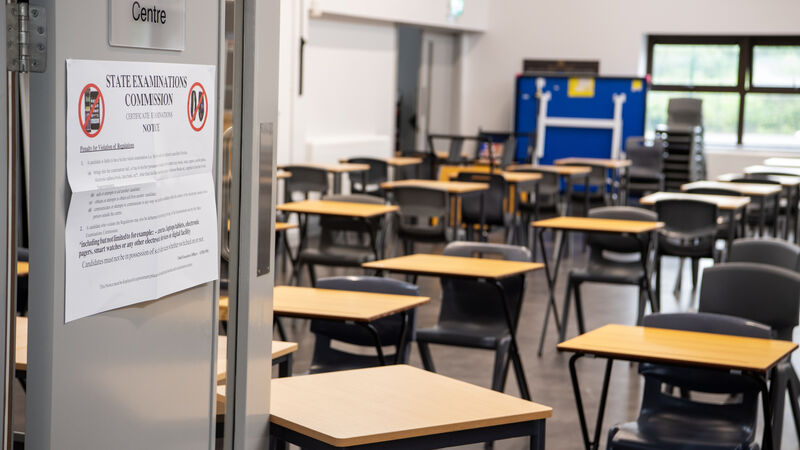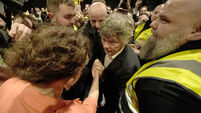Letters to the Editor: Time for Leaving Cert reform

Thousands of students will begin their Junior and Leaving Certificate written examinations from Wednesday. Picture: Domnick Walsh/Eye Focus Ltd.
The nightmare of the Leaving Certificate seems set to continue for the class of 2024, as students of mathematics, Gaeilge, biology, French (including aural), and history will have to spend 17 hours and five minutes doing written assessments over three consecutive days with two examinations in different disciplines each day. It would be difficult to find a more educationally regressive system than this.
Little wonder that students complain about the volume of information they have to retain for this high-stakes assessment.











